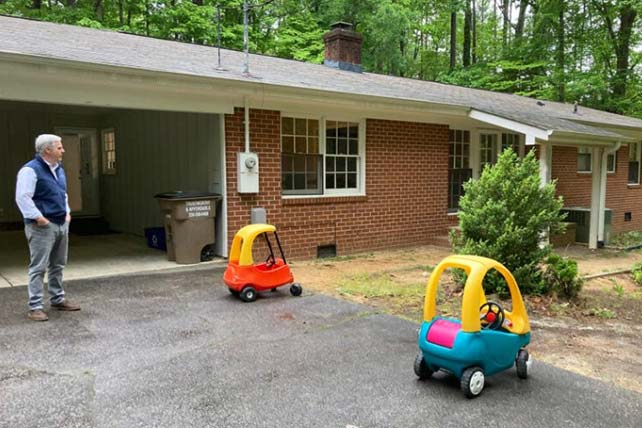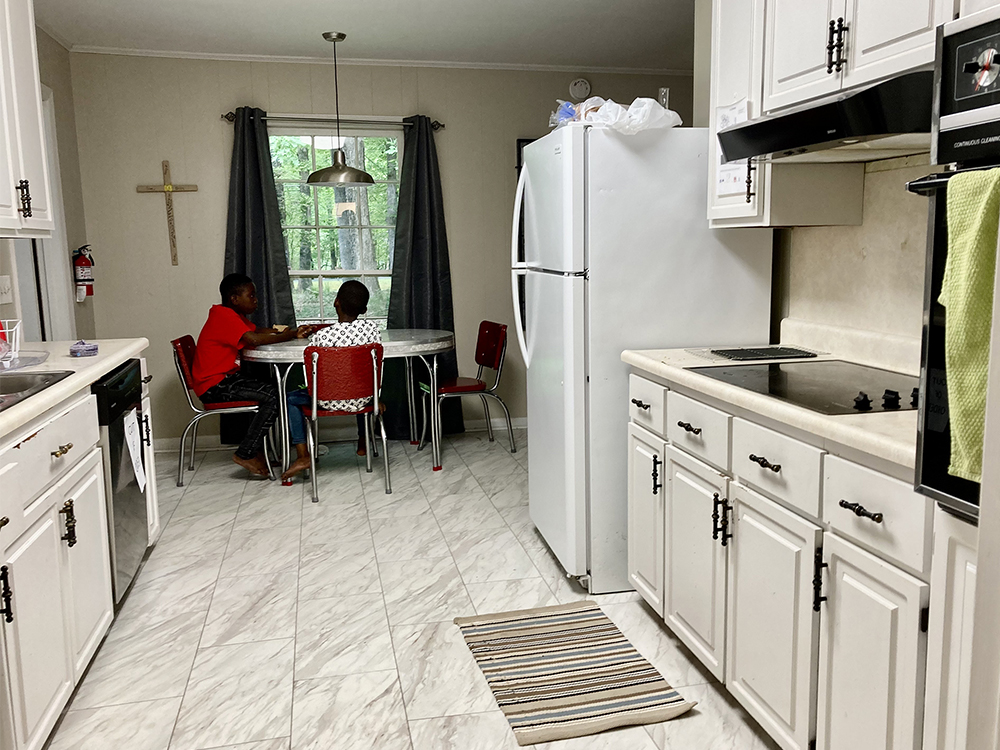(RNS) — With the U.S. withdrawal from Afghanistan nearly two years ago, religious congregations across the country began extending an embrace to refugees.
Partnering with resettlement agencies, they helped families escaping war and political turmoil settle into homes, find jobs, learn English and acclimate to life in the U.S.
Now, in a corner of North Carolina, a group of Baptist churches has begun to deepen that support by retrofitting vacant church-owned buildings — often homes — for refugee housing.
Organized through the Cooperative Baptist Fellowship of North Carolina but open to any religious congregation, a new initiative encourages churches to refurbish church-owned parsonages, office buildings, youth clubhouses or single-family homes and make them available to refugees or humanitarian parolees for a nominal fee.
RELATED: Ministry Equips Churches To Serve Refugees in Kansas City
“It’s increasingly difficult to find affordable housing for refugees,” said Marc Wyatt, a missionary who founded the Welcome House Community Network. “Churches have physical property and buildings that are underutilized. Rethinking the use of those buildings for housing is our vision.”
On Saturday (April 29), the network held its first housing and hospitality summit with 210 congregational leaders — mostly from North Carolina — wanting to learn more about how to use vacant church properties to minister to refugees.
The conference made plain twin realities: A glut of underutilized church properties and a severe shortage of affordable housing for newly arrived refugees with few means.
So far, about a dozen churches in North Carolina’s Triangle region, anchored by Raleigh, Durham and Chapel Hill, have retrofitted ancillary buildings for use by refugees. In all, about 40, including churches in Virginia, Tennessee and Texas, have joined the Welcome House network.
Two boys, part of a refugee family from Congo, share an afternoon snack at a house owned by Temple Baptist Church in Durham, North Carolina. RNS photo by Yonat Shimron
They include First Baptist Church in Hillsborough, which is housing a seven-member Afghan family in its parsonage, and Temple Baptist Church in Durham, which owns a ranch-style home a few yards away from its sanctuary where an eight-member family from Congo is now staying.
Churches typically charge the families $10 a day to cover the cost of utilities and otherwise provide hospitality and connection.
RELATED: ERLC Event: Serving Refugees Part of Great Commission
“A lot of (church) folks like to clean and prep the house,” said Randy Carter, pastor of Temple Baptist. “Some people like to work in repairs or on the yard. A small group of folks are more engaged with the family itself.”
Until recently, many of these church-owned homes had been used by pastors or foreign missionaries on leave. Increasingly, they have stood vacant.
The surge of refugee and humanitarian parole programs under the Biden administration has made affordable housing an urgent need.
Since he took office in January 2021, Biden’s administration has reversed Trump-era restrictions on immigration to the United States. The boost in refugee admissions includes some 300,000 Ukrainians who have arrived in the United States fleeing war with Russia, more than all the people from around the world admitted through the official U.S. refugee program in the last five years.


